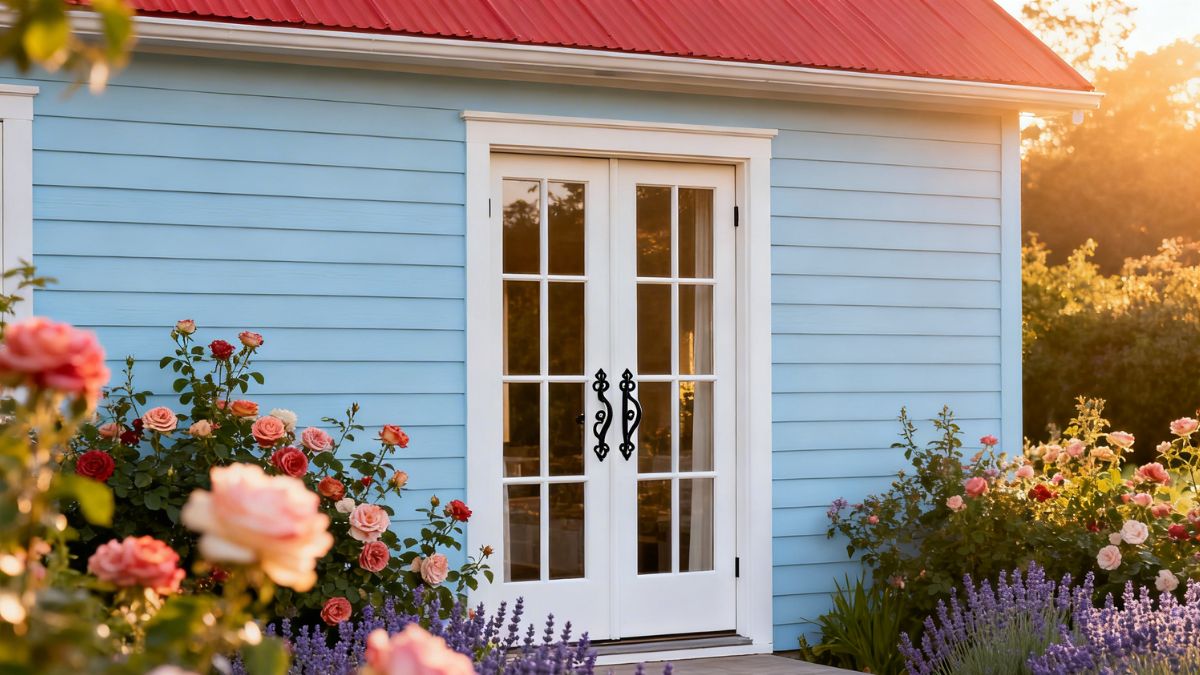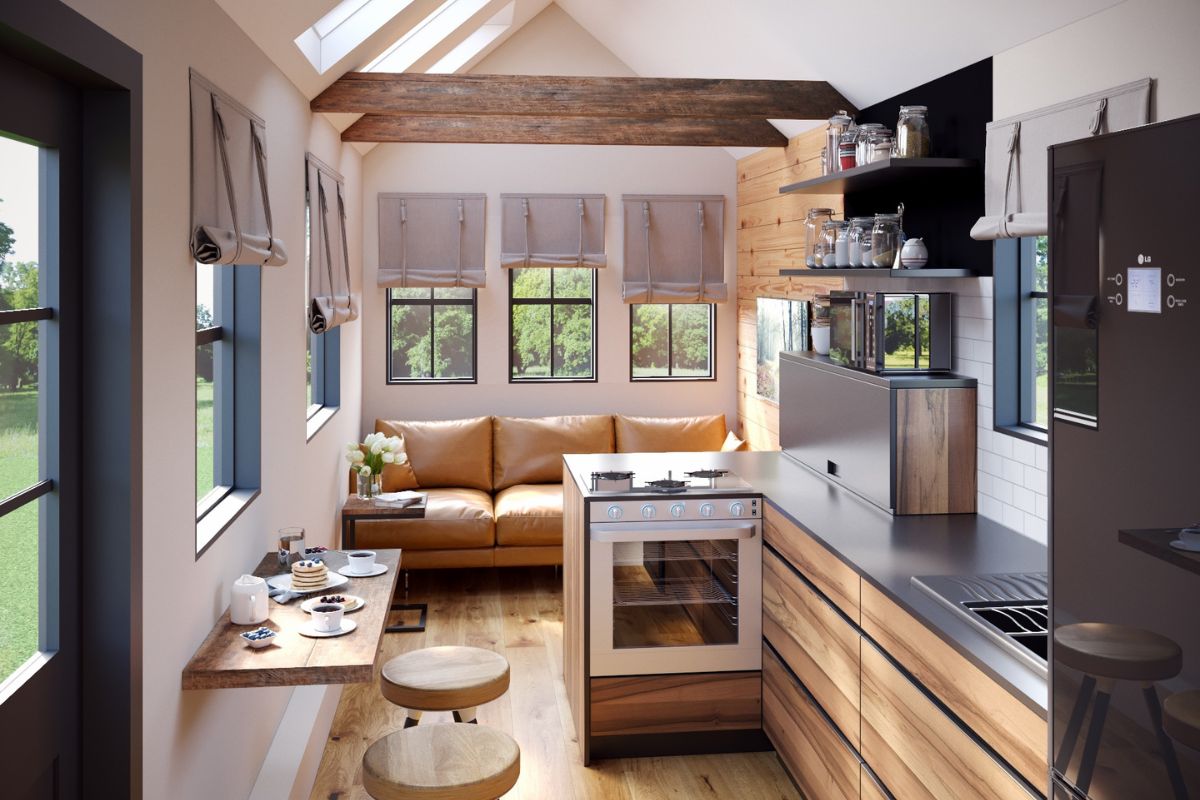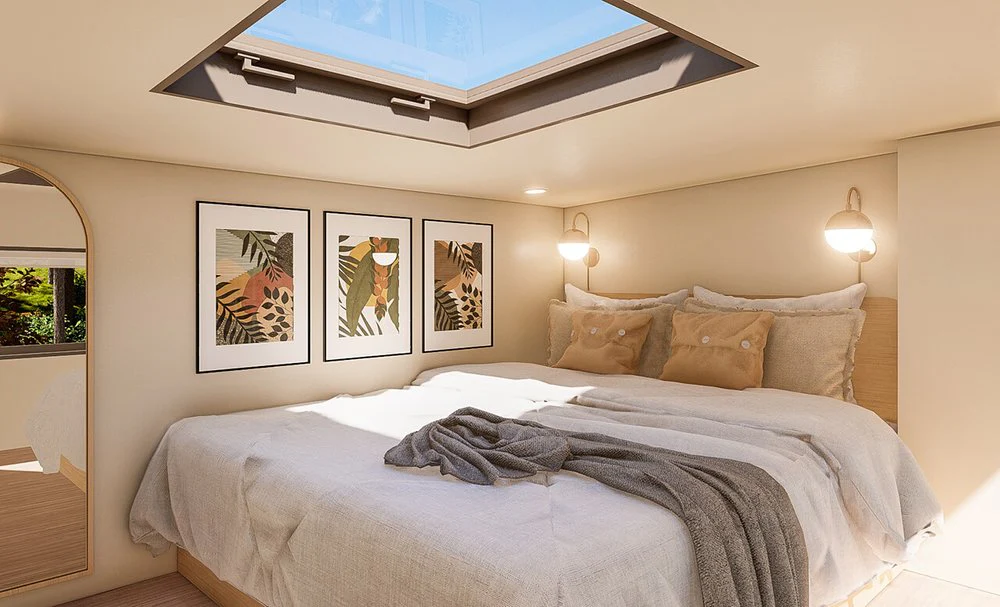Motorhome Lifestyle: Key Things to Consider Before Starting Your Journey
.jpg)
Moving from the comfort of a traditional house to that of a motorhome can be a daunting and complicated decision. The truth is, however, that the process is far more achievable than many might imagine.
Of course, there will be curveballs and things to consider before making the change. But with the right planning and mindset changes, the process can certainly be an enjoyable one.
Debunking Common Myths About Motorhome Life
First and foremost, let’s address some of the most common myths about the motorhome lifestyle:
Myth 1: Motorhomes Can Handle Any Weather
While most motorhomes are comfortable and seem like small houses, they are still vehicles. Certain temperatures and extreme weather conditions might not be a problem for a normal brick-and-mortar house, but will be for a motorhome.
Many motorhomes are not well insulated, and the existing air-conditioning (AC) or piping systems can be heavily affected by traveling. Pipes can break, AC units can malfunction, and the lack of fixed infrastructure can cause you and your passengers to face some tricky weather conditions, both cold and hot.
Myth 2: Motorhomes Are ‘Trashy’
There is a misconception that people who choose to live in motorhomes do so out of desperation. Far from being “trashy,” many motorhomes are well-maintained and equipped for comfortable, long-term living.
The appeal of the motorhome lifestyle is not limited to those with little resources; it’s often a choice made for the sake of personal freedom and adventure.

Myth 3: Motorhome Life Is Lonely
Another misconception is that mobile home life is one of isolation and loneliness. The truth is that while you may not have a set address, shifting to life living on the road exposes you to a whole new community of like-minded people.
There are a host of online groups and individuals who are eager to connect and welcome newcomers, giving hints of great locations, mobile home-friendly amenities, and social events. You can even find communities that curate themselves around their mobile home brand, type, and family dynamics.
Myth 4: Motorhomes Are Not Suitable for Families
While it may be a little more unusual than the standard setup, living in a mobile home with children is possible. Many people who do it and do it well, homeschooling their kids or using online platforms to ensure that their children are getting a solid education while on the road.
Tips for Buying the Right Motorhome
Here are some important factors to take into account once you’re ready to take the plunge:
Budget
Budgeting for a motorhome means far more than just the purchase price. Motorhome living costs include:
- Vehicle cost: Although prices vary from brand to brand, motorhomes often cost a lot more than the standard truck or SUV.
- Features and amenities: Generators, water heaters, onboard toilets, and extra storage solutions can be a large capital expense.
- Maintenance and repairs: Just like owning a normal house or car, mobile homes need upkeep, which can get expensive.
- Running costs: Fuel, campsite fees, tolls, roadside assistance, etc, should all be part of your financial planning.
Tip: Investing in quality features from the start often saves money (and headaches) later.
Choosing the Right Vehicle
When in the market for a motorhome, keep these factors in mind:
- Size: Make sure that the vehicle is the right size for what you need, and for where you plan to travel.
- Reliability: Not all brands are equal, so do your research on the vehicle’s durability and serviceability.
- Features: Look out for features like built-in toilets that suit your needs. It might be more expensive to add them on after the fact.
- Expansion possibilities: If there are features that the vehicle doesn’t have but that you might like in the future, make sure there’s enough space to add these amenities later on.

Adjusting Your Lifestyle
Finding and purchasing a motorhome is only the beginning of the journey. You’ll need to make a few lifestyle changes (or at least prepare for them) during the transition to a semi-nomadic way of living.
Downsizing
Space is extremely limited. Embrace minimalism while living on tiny wheels:
- Invest in furniture that doubles as storage space.
- Keep only essential items, and relinquish the idea that more is always better.
- Take full advantage of any vertical storage space.
- Regularly declutter to keep the space neat and usable.
Financial Adjustments
While you’ll save on traditional housing costs like rates and taxes, new expenses will arise that you may not have expected:
- Fuel: Expect fuel costs to be higher than your standard vehicle, since the size and weight of the motorhome will mean it’s heavier on gas.
- Maintenance: Servicing your vehicle regularly is essential to avoid breakdowns while on the road.
- Campsite Fees: Campsite and RV park overnight fees should be factored into the budget since they can add up quickly.
Work-Life Balance
For many, motorhome living means having to work fully remotely. Not only is having a stable internet connection super important, but having the right setup and schedule can make or break your work-life balance.
- Invest in a high-quality mobile internet setup like an eSIM.
- Use nearby coffee shops, libraries, or coworking spaces.
- Have a designated spot in the motorhome for you to work from, and specific times you generally work.
Remember that a stable internet connection isn’t just about work; it’s also essential for safety and accessing emergency services.

Potential Challenges
Even with meticulous planning, life on the road can come with its fair share of unexpected cons. Here are some obstacles that you might face, and how to prepare for them:
- Parking: Unfortunately, you can’t just park wherever you’d like in most countries. You may need the landowner’s permission, which comes with some costs. Thankfully, various apps on the market these days can help you find the perfect spot.
- Home address: If you live on the road full-time, you likely won’t have a fixed address to send mail and bills to. Chat to a family member or friend who’d be willing to let you use their address on forms, or rent a mailbox from which you can collect as you pass by.
- Access to healthcare: Constantly being on the move means that you won’t always be near a hospital or a medical doctor. Plan ahead by carrying a medical kit and educating yourself on basic first aid. It’s also always a good idea to know where your nearest clinic or hospital is, just in case an emergency arises that you cannot handle on your own.
- Staying connected: A nomadic lifestyle depends heavily on reliable internet for both safety and productivity. Planning to travel through the land down under? Having a solid setup with an eSIM Australia plan means you can work remotely, look up places to go, or call for assistance in emergencies.
Conclusion
Owning and staying in a motorhome may not be for everyone, but for those looking for the freedom and flexibility of living on the road, there’s a lot to enjoy. With careful planning, smart budgeting, the right vehicle, and a willingness to adapt to the lifestyle, you’ll be well-prepared to hit the open road and thrive.
Ready to embrace the motorhome life? Start your journey on tiny wheels today, and discover the world from your front seat.







.jpg)

